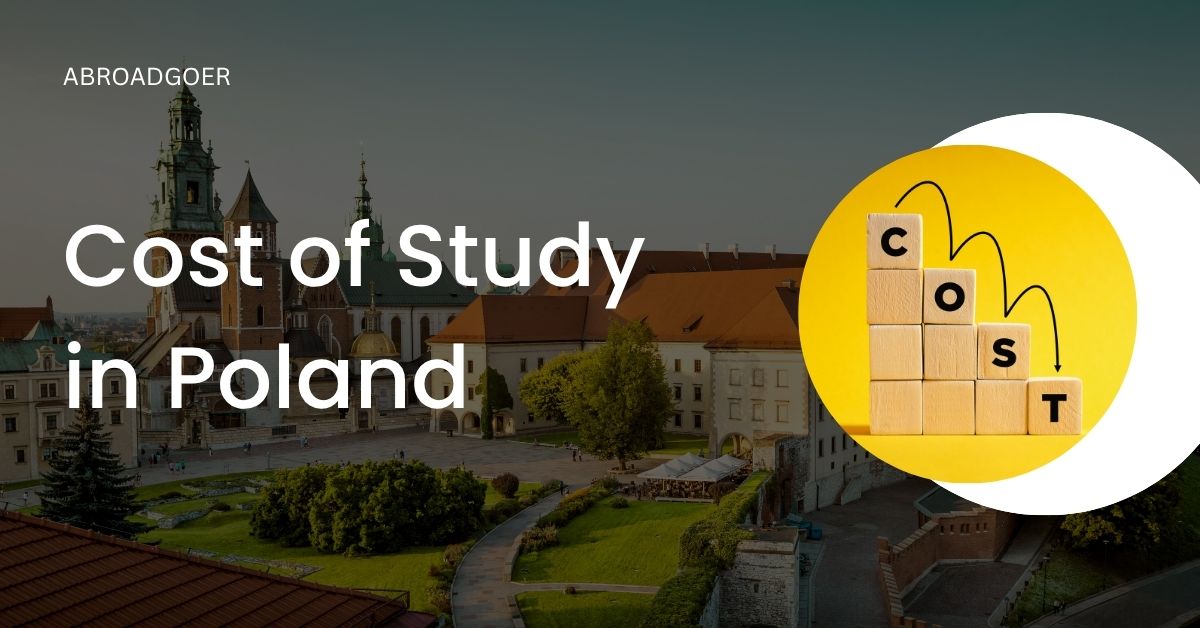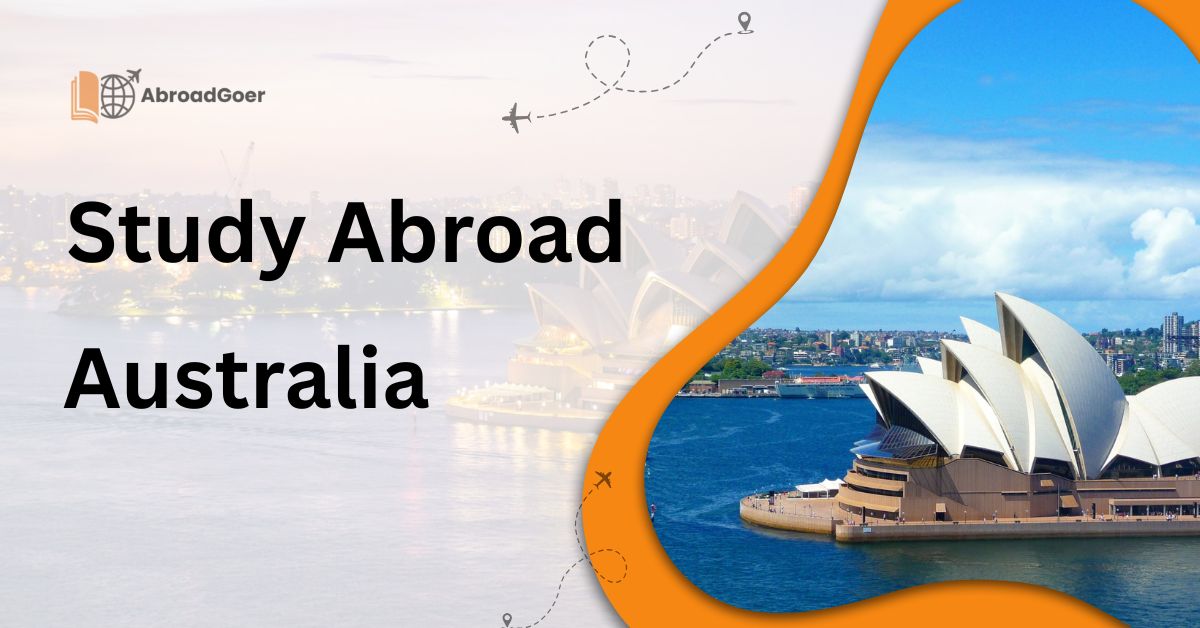Cost of Study in Poland
Are you envisioning yourself walking through historic European streets, learning at a top-notch university, and experiencing a vibrant new culture, all without accumulating mountains of debt? If so, you are likely wondering about the cost of studying in Poland. The great news is, Poland offers a surprisingly affordable pathway to a world-class education, making that dream much closer to reality than you might think.
Many aspiring international students hesitate, believing that studying in Europe is inherently expensive. But Poland stands out as budget budget-friendly gem. This article will meticulously break down every aspect of the cost of studying in Poland, from the fundamental tuition fees for international students to daily expenses, visa costs, and even opportunities to earn while you learn. Our goal is to give you a crystal clear picture, helping you plan your academic journey with confidence.
Why Poland Study Abroad is a Smart Choice
Cost of Study in Poland. Before we get to those numbers, let’s look at why Poland is an appealing destination for so many students to study abroad. It’s not just a matter of saving money; it’s a matter of everyone, regardless of parents’ means, having access to a first-rate education, recognized around the world. Poland has a proud past, natural wonders, and vibrant cities. And don’t forget, as a member of the European Union, its higher education system follows the Bologna process, so you can rest assured that your degree will be universally recognized and respected.

Many Polish institutions are very well ranked and provide a wide range of high-quality programmes taught in English. And in addition, it is smack dab in the middle of Europe, so you can easily travel anywhere in Europe without breaking the bank! It’s traditional meeting innovation, and it’s a world away from home-so enriching. Comprehension of Tuition Fees in Poland for Foreign Students
Understanding Tuition Fees in Poland for International Students
The most significant financial aspect of your cost of study in Poland is tuition fees. It’s here that Poland sets itself apart. Especially when you think about how much cheaper Polish tuition fees are, in comparison to studying in countries like the UK or the USA.
How much, exactly, you’ll pay depends on a few key factors:
- Type of institutions: Polish institutions are public, private , and Schools of the Arts. Public universities tend to be cheaper, although some may have higher competition for places. Private institutions make up for specialized programs with higher tuition costs.
- Language of Study: Choose a course that’s taught in Polish, and it might still be free at state universities for EU/EEA students or to Polish Card holders (Karta Polaka). Official Polish Card Information. Except for Chinese, anyone learning in programs of English-taught courses has to pay tuition. This is usually called English school fees in Poland, although I understand that these are university tuition fees for English-taught programs, not language schools.
- Discipline and Study Year: Certain courses are more expensive, as a general rule. For example, requirements to study medicine in Poland for international students may have higher tuition fees, as do MBA programs and dentistry. Lower fees are common in the humanities, social sciences, and many engineering fields.
Here’s a rough breakdown of the average annual tuition for international students:
- Bachelor’s: normally around €1,500 to €5,000 per year of study.
- Master’s Programmes: Usually €2,000 to €6,000 per year.
- PhD: In Poland, there are many students who are enrolled in PhD studies for free or on scholarships. Tuition Fees If tuition fees are charged, they amount to about €3,000 per year.
- Medicine and Dentistry Degree: These are usually the most costly, and the annual fee could be anything from €8,000 to upwards of €15,000 a year and onwards.
Note that in the majority of instances, tuition is not different for non-EU and EU citizens respectively: for English-taught courses (for international students), they charge the same tuition, which makes it fair and appealing to all students from around the world.
Tuition(s) costs in Poland per Semester
Tuition charges are often assessed per semester or per academic year. For an average course, a Bachelor’s or a Master’s in Poland, if your school fees are, for example €3,000/year, the cost of studying for one semester in Poland is around €1,500. You usually need to pay the university a few weeks before the beginning of the semester (e.g., beginning of October for the winter semester, and in March for the summer semester). Other schools, such as the University of Warsaw, may provide payment plans that allow you to spread out the cost of your tuition by paying in smaller increments.
Breaking Down the Cost of Studying in Poland Per Month
Monthly сosts of living in Poland. How much money do you need to study in PolandHow Much Money Do You Need To Study In Poland In Daily Life: What is the average cost of living in Poland per month? In addition to fees, your living costs are also important to consider in the total cost of studying in Poland. Here, Poland certainly has an edge, as the cost of living is nowhere near that of Western European countries.

Your monthly budget will depend on your lifestyle and, more importantly, your city of choice. Of course, larger, more touristy cities (Warsaw, Krakow) will be moderately more expensive than comparable less-travelled cities (Lodz, Poznan, Gdansk). International students have a monthly cost of living between €350 and €850, on average. Let’s break this down
Cost of Rent in Poland
- Student Dormitories: This is usually the cheapest, between €60 and €300 per month. Studentflats: This option can go from €100 to €400 per month. Dormitories are a great way to meet other students, and they’re often located very close to a university’s campus. But demand can be great, and supply, scarce.
- Private Shared Apartments: This is one of the most popular options among the Polish and international students. Sharing a room in a shared apartment can range from €80 up to €150 a month. This is more private than a dorm and at the same time remains affordable.
- · Rent an Apartment Private Apartment: If you like to have privacy — which there’s absolutely nothing wrong with — you can pay for the one-bedroom apartment in a larger city like Warsaw or Krakow anywhere from €300 up to €650, and to €1000 for modern apartment in a very good location (prices are per month).
- Extra Rental Cost: Keep the utilities in mind! These are usually electricity (heating, water, rubbish , etc) and cost around €150 per month for a standard apartment. Also in the cards is a two-month refundable deposit that many landlords require.
Food and Groceries
It really doesn’t cost a lot to eat well in Poland, particularly if you like to cook. Most students plan to spend between €100 and €200 on groceries per month. Budget-friendly supermarket shopping is offered in the likes of Tesco, Auchan, Carrefour, Leclerc, and Lidl. Eating out is also pretty cheap. You can expect to spend around €5 for a meal in a casual café, up to €23 for a good three-course meal for two in an average restaurant. A coffee or fizzy drink is typically about €2.
Transportation
- Public transport is both student-friendly and efficient in Polish cities.
- A student pass (six months) is €50 (±) per semester.
- Monthly passes typically sell between €15 and €30.
- A lot of cities are super walkable, which helps you save on transportation and also check out the local scene.
Health Insurance, Etc.
All international students are required to have insurance. Annual cost: The cost per year is typically €200 to €300. You have two options: the NFZ Polish Health National Fund NFZ Official Website or a private medical provider.
- Budget €100-€200 per year for books and study materials.
- Consider personal costs, including phone and internet (€17-€22 / month) and entertainment (€35-€45 / month).
That said, the average total monthly cost for an international student may be anything from €450 to €1000, and therefore, the price of studying in Poland per month is very reasonable.
How Much Does it Cost to Move to Poland? Initial Expenses
Don’t forget the initial costs when you first enter Poland, of course, apart from the usual monthly cost:
- Visa Application Fee: Suggested to be something around $160, which is about 15,971 PKR (for Pakistani nationals).
- Flight Tickets: Ranges a lot depending on the origin place and time of booking.
- Deposit for housing: If you hide in a private apartment, then be ready for a 2-month deposit that is refundable.
- First Time Settling Costs: A small buffer for settling in your apartment, getting groceries initially, etc.
It is worth considering these pre-launch costs when planning your finances as a whole.
How to Study in Poland for Free and Scholarship Opportunities
Many foreign students pay tuition; however, you have a chance to cut your expenses for education in Poland more than in half or to get your education for free.
Free College in Poland
- Yes, you can study for free at the top public universities in Poland, BUT with conditions:
- You are a Polish national.
- You are an EU/EEA citizen enrolled in a full-time program taught in Polish.
- You have a Polish Card (Karta Polaka).
Some part-time or particular English-taught programmes can also be free to all students, but this depends on the individual university. It’s important to verify the requirements with your prospective school.
International Student Scholarships
And even if you have to pay tuition, there are many scholarships available to help soften the blow to your wallet. These include:
- Polish Government Scholarships: Such programmes include the Stefan Banach Scholarship offered by NAWA (The Polish National Agency for Academic Exchange) [[NAWA Scholarships Page]] to help out students from developing countries.
- Scholarships from the University: Most universities (such as the University of Warsaw) have merit-based, need-based, and program-specific scholarships available to applicants.
- Erasmus+ and Erasmus Mundus Scholarships: These are funded by the EU programs and enthusiastically fund European-based studies for students reading for a Master’s and/or PhD.
Look into scholarships, apply early, and be cautious about your options.
Study and Work in Poland
An important benefit for foreign students in Poland is the possibility of work. This can really make a big difference in your cost of studying in Poland per month.
- Hours of Work: Normally, you may work up to 20 hours per week while school is in session. You can work seventy-two hours full-time up to one week during official university holidays.
- par Work Permit: If you have a legitimate TRP, you generally do not need an additional work visa.
- Average income: There you can expect between 400€ and 800€ as a part-time worker. This should be more than enough to cover your daily food, transportation, and entertainment.
- Very Important Note: Working is an excellent way to help fund your lifestyle, but your main priority must be your studies. A poor academic record can put your student visa or resident permit renewal at risk.
Poland Study Visa and Entry Requirements to Study Medicine in Poland for International Students
You will need to show the visa officer that you have enough financial capacity to complete your education in Poland. If you’re not a citizen of an EU/EEA/Swiss country, you will need a D-type national visa.
Poland Student Visa Cost
The cost of a Poland student visa is usually USD 160 or EUR 99. For Pakistani students, things were recently reported as: around 15,971 PKR (in the year 2014) (according to the Embassy of Poland in Islamabad Website). This fee is typically non-refundable.
Study in Poland for International Students Requirements (Visa and General)
Here’s a detailed guide listing the financial and other requirements of your Polish student visa:
- You need to get your University Acceptance letter -This is very important. It is a confirmation of you being a student of a Polish university.
- Show Proof of Funds: This is arguably the most important financing requirement. You must demonstrate:
- At least PLN 776 a month to cover the living expenses. Polish Ministry of Foreign Affairs Visa Information, and this is on top of your room spending.
- The value of your return ticket: 2,500 PLN if you have not previously bought a ticket.
- These savings should usually be reflected in your bank statements of the last 3-6 months.
- Obtain Health Insurance: Provide evidence of health insurance while in Germany for a period covering your stay with a minimum cover of € 30,000.
- Confirm Housing: Provide evidence of where you will stay, such as a dorm lease or lease agreement.
- Language: Even though there are a lot of English-taught programs, some universities/the program you have chosen may insist on English and Polish language proficiency, e.g., IELTS/TOEFL test score, provided you have not studied in English previously. A source that has been given to me mentions University of Warsaw and the Warsaw University of Technology may be enough for partial or full exemption from IELTS if your previous language of instruction was English. Be sure to always check with your school.
- Fill Out e-Konsulat Application Fill out the e-Konsulat (electronic Visa Application) form, print out the form, and sign.
- Have an Interview with the Embassy/Consulate of Poland: Schedule and go for an interview at a Polish embassy or consulate in your home country. List of Polish Consulates Abroad. You are going to get all your documents submitted, and you will pay the fee and give biometrics. Be ready for an interview on the study you wish to pursue and your financial condition.
- Wait for Decision: It usually takes 15 working days to process your visa, but it can take up to 30 days. They really recommend that you apply a maximum of 2-3 months before the date that you want to travel.
- Find out how you can apply to a Polish medical school if you want to study medicine in Poland as a foreign student.
- Requirements for studying medicine, dentistry, or other health sciences in Poland are generally different due to being challenging and clinically based. In addition to the standard academic and financial qualifications, you may require:
- High Academic Grades: –Excellent performance in science subjects
- Entrance Exams: A few medical universities may hold their entrance exams in subjects such as Biology and Chemistry.
- English Proficiency The study of medicine in English countries requires near native-like English as demonstrated through scores from tests such as IELTS, CBC, or TOEFL.
- Medical Test: We did find through one source that Pakistani students might not be required to take a medical test, so we list it here as it could be on a case-by-case basis; please check with the particular medical university.
- Medical studies in Poland are also significantly higher than for other courses; this is because Poland offers a specialized medical education.
After Arrival: Temporary Residence and Long-Term Prospects
Your D-Visa will usually give you a sojourn period of up to one year. If you are staying in for longer, you should be applying for the TRP in person outside Poland at your local Voivodeship Office ([Voivodeship Office Information]) before your visa has run out. This visa typically enables you to remain in the country for an initial period of up to 15 months, with the possibility to renew it for the duration of your studies (a maximum of three years per renewal). This is also a permit in Poland that allows you to stay and work.
Poland After completing the program in Poland, there are some opportunities to stay and work:
- Post-Study Work: Non-EU students generally have some time (let’s say 9 months) after graduation to find a job and apply for an employment residence permit.
- Permanent Residence: Based on continued legal residence (normally 4 years on a TRP) and stable income, you may apply for permanent residence.
So, your investment in the cost of study in Poland can get long-term opportunities for career growth in the EU.
Consultants and Resources: Poland Study Abroad Consultants
The application process, financial obligations, and obtaining a visa can be confusing. Poland study abroad consultants are a practical option for many students. These services are typically provided by agents who help international students with university applications, visa processing, and accommodation. They will be able to give you personalised advice, expedite your application, and help you to satisfy all the study in Poland for international students. This does come with a modest fee, but it can save you a lot of time and hassle. Try to find agents with good references and an understanding of the Polish education system.
Final Thoughts: Cost of Study in Poland
In summary: Studying in Poland is an extremely amazing opportunity for international students who want to get high high-standard European education but on a budget. Poland offers excellent value, from cheap fees in Poland for international students to incredibly low living costs.
Just imagine yourself in Omar’s shoes, a student who, thanks to his Poland study abroad consultants, managed the visa process and found himself a place at the University of Warsaw. He even worked part-time to cover the cost of his studies in Poland per month. Today, he considers it the best investment of his life – a solid education, exposure to a new culture, and an unshakeable worldwide network of friends.
Do the math. Based on your financial planning, using available scholarships and work opportunities possibilities, there’s a real prospect that a dream of studying in Europe is not just a goal but still an expensive experience? Not in Poland. It is an investment that will yield immense returns in both the academic and personal spheres. Nothing should prevent you from taking on this amazing opportunity! Start browsing programs now and plan your life in study abroad in Poland.







